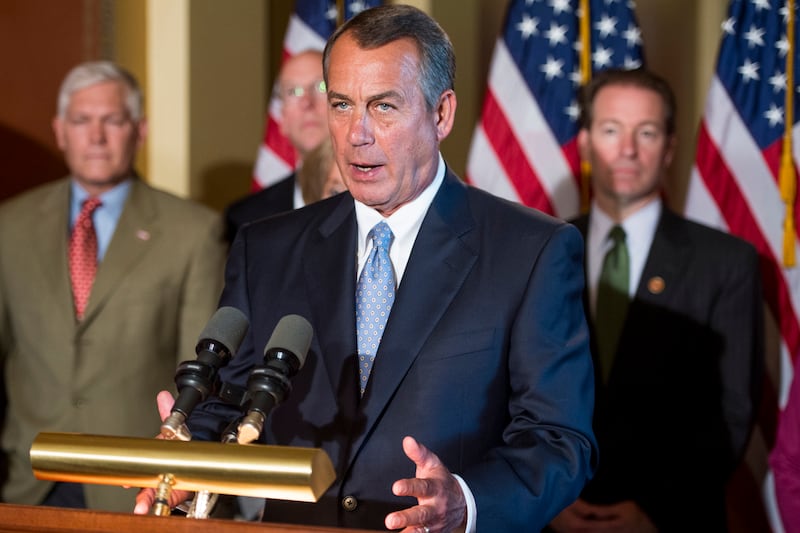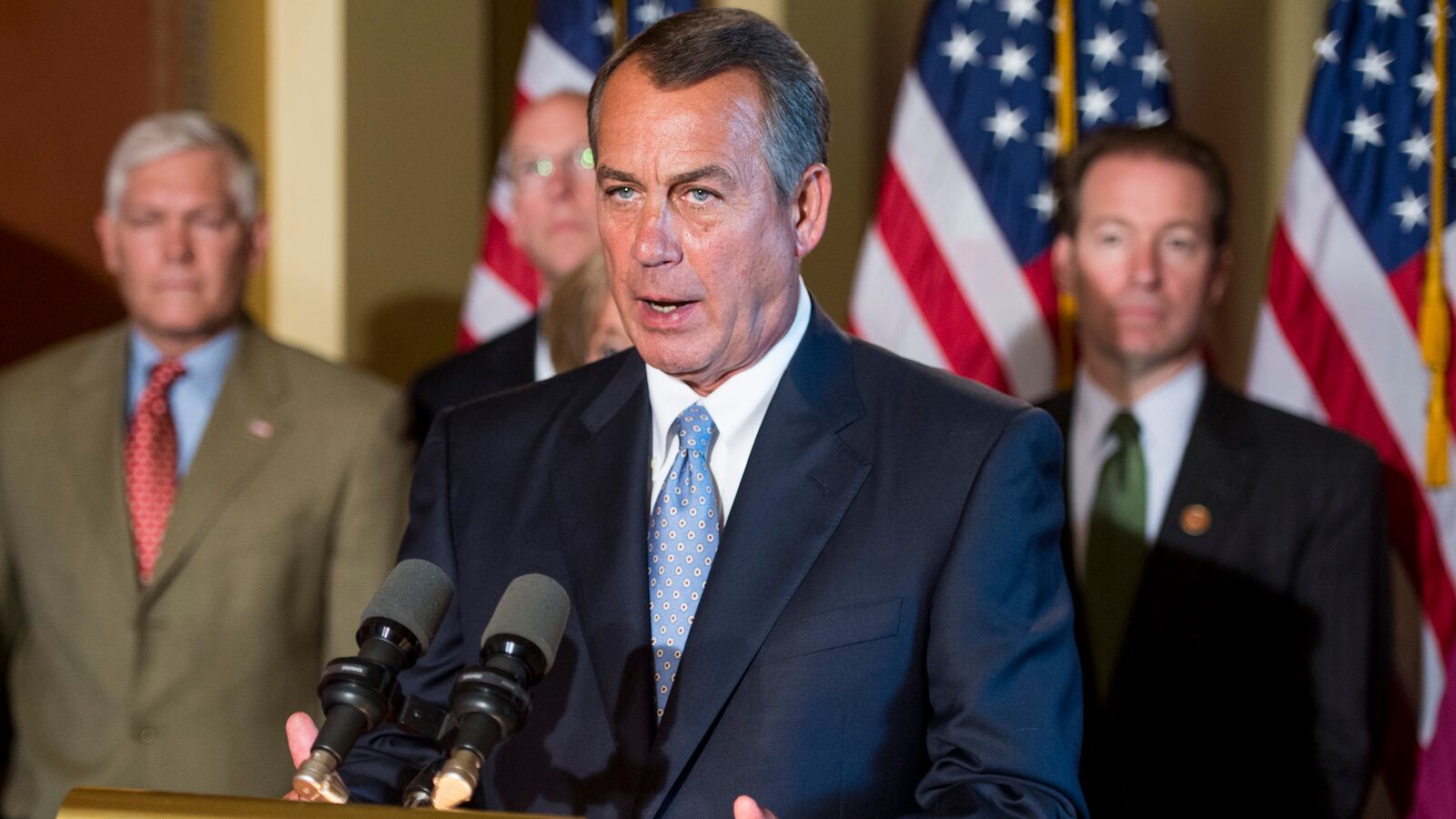Used to be that if you said a swear word, your mama would wash your damn mouth out with soap.
Seems we need a boatload of Dove here inside the Beltway, given this town’s linguistic lapses.

In a fine bit of sequester temper Tuesday, John Boehner told the Senate to “get off their ass” and do something about the fact that life as we know it—from park closures to meat inspections—is about to end.
I’m sorry, did one of the leaders of the free world just say “ass”? Darn tootin’.
Actually, that’s pretty mild compared to what the House speaker said to Harry Reid at the White House a few weeks back. His phrase of choice then was “Go fuck yourself,” which the congressman helpfully repeated when the Senate majority leader asked him WTF he was talking about. (Boehner wasn’t speaking publicly, but what the hell? He knows everything leaks in D.C.)
F bombs seem to be the weapon of choice in politics these days, as when Vice President Biden told President Obama that passing the health-care law was a BFD—such a big deal, indeed, that his words were picked up by a mike. But Biden was merely following the proud tradition set by his predecessor, when Dick Cheney told Sen. Patrick Leahy on the Senate floor to “go fuck yourself.” No one said Washington scored high on the originality scale.
George W. Bush was slightly more creative in 2000, when he called New York Times reporter Adam Clymer a “major-league asshole.”
Obama himself used Boehner butt talk when he fended off complaints that he was moving too slowly on the BP oil spill because he needed to find out “whose ass to kick.” Because that’s apparently part of his constitutional responsibility.
It’s a coarsening of society’s upper strata, a new blurring of professional decorum with saloon-style talk.
So what the hell is going on? Is this a troubling trend, or are our elected officials finally dropping the “my esteemed friend” BS and talking like much of the country?
Neither, says presidential historian Douglas Brinkley. “There are hundreds of examples of name calling,” he says. “Our times are not uniquely bizarre.”
As early as the 1700s, politicians were getting mileage out of uttering obscenities. But not our prim and proper founding father.
Cursing, indeed, pissed off George Washington so much he issued the General Orders on Profanity in August 1776. In a dispatch to troops, Washington wrote: “The General is sorry to be informed that the foolish, and wicked practice, of profane cursing and swearing (a Vice heretofore little known in an American Army) is growing into fashion.”
Proves that political potty-mouthing is practically our birthright.
Give-’em-Hell Harry Truman was a particularly egregious offender who would have caused Washington’s wig to turn even whiter.
In a 1961 interview, Truman—who could more than hold his own with any sailor—let it rip: “Nixon is a shifty-eyed goddam liar, and the people know it.”
On firing Korean War commander Douglas MacArthur, Truman said, “I didn’t fire him because he was a dumb son of a bitch, although he was, but that’s not against the law for generals.”
Some pols like Truman are just natural cursers, Brinkley says. What has changed are the types of words in vogue. It used to be that “son of a bitch” was the ultimate epithet. “Now it’s low-grade curse words that carry a wallop.”
Deborah Tannen, a linguistics professor at Georgetown University and author whose books include the bestseller You Just Don’t Understand, says the increased public use of swearing is “part of a general pattern” in society as a whole, not just politics.
“People are using vulgar expressions not heard until recently,” Tannen says. She points to Sunday’s Oscars show, where Seth MacFarlane taunted actresses with a song called “We Saw Your Boobs.”
Tannen sees an erosion of the barriers between public and private conversations. Richard Nixon swore constantly in private, but we only know that because those pesky Watergate tapes finally saw the light of day.
Lyndon Johnson, who also taped some of his White House conversations, not only told dirty stories but used the N word and spoke about his “bunghole.”
One reason for the blurring of professional boundaries can be dumped in the lap of the news media. In a 24/7 news cycle, it’s simply harder to grab headlines without adding salty rhetoric. Even pundits—Fox’s Bob Beckel is the latest—have dropped F bombs on the air.
Boehner’s crack about Senate posteriors was a tad unseemly, but he’s got plenty of company. Maybe we’ve become so used to congressional cursing that it takes a more sustained string of expletives to make us give a darn.





